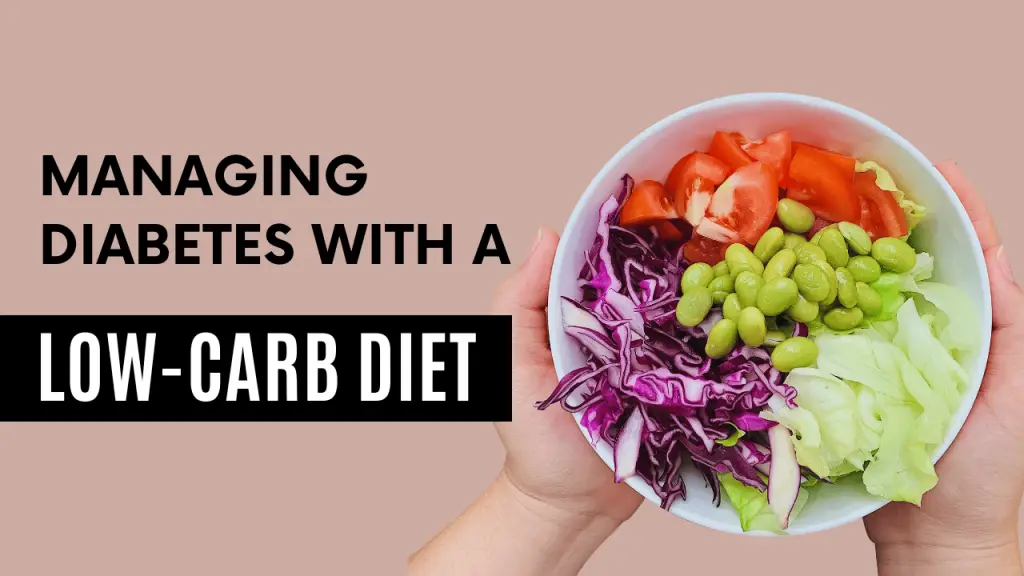Table of Contents
Are you searching for a diabetes-friendly diet that helps manage your health effectively?
Diabetes is a chronic illness that affects millions worldwide. Although it is a complex disease, maintaining good blood sugar levels can significantly reduce the risk of complications. One of the effective way to control blood sugar is by following a low-carb diet, where less than 10% of your daily calories come from carbohydrates.
What is a Low-Carb Diet?
But how low is “low-carb”? There are different types of low-carb diets, but in general, a low-carb diet means consuming less than 130 grams of carbohydrates per day. For comparison, a medium slice of bread contains about 15–20 grams of carbs, roughly the same amount as a regular apple. A large baked potato, on the other hand, can have up to 90 grams of carbs, which is similar to what’s in one liter of orange juice.
Before You Start
Before starting a low-carb diet, it is important to consult your healthcare team, especially if you are on insulin or other diabetes medications that could increase the risk of hypoglycemia (low blood sugar). Restricting carbohydrate intake and changes in body weight might necessitate adjustments to your medication or insulin dosage.

Benefits of a Low-Carb Diet
People with type 2 diabetes, a key advantage of a low-carb diet is weight loss, which can help reduce HbA1c (an indicator of blood sugar control). And individuals without diabetes, weight loss through a low-carb diet can lower the risk of developing type 2 diabetes.
Side effects
It’s worth mentioning that the keto diet, a type of low-carb diet, may lead to some uncomfortable side effects, particularly during the initial weeks, including:
Constipation: Low-carb diets often lack fiber, causing digestive issues. Eating fiber-rich foods, low-carb vegetables like cauliflower and leafy greens can help to deal with it.
Headaches and fatigue: As your body trying to regulate blood sugar levels, these symptoms may occur.
Bad breath: due to fat burning process, production of ketones occurs, resulting in a fruity or ammonia-like smell.
Dehydration: Low insulin levels can lead to water and electrolyte imbalance, so it’s important to drink enough water and consult your doctor about sugar-free electrolyte supplements.
Diarrhea: High-fat diets can be difficult for some people to digest, leading to digestive issues.
Foods to Eat and Limit
It’s important to focus on low-carb, nutrient-dense foods while also paying attention to your hunger and fullness signals.
Foods to Eat:
You can eat the following low-carb foods. Be make sure to include enough protein at each meal:
- Meat, poultry, and seafood
- Eggs
- Cheese
- Non-starchy vegetables (most vegetables except starchy ones like potatoes)
- Avocados, olives
- Olive oil, coconut oil, butter, cream, sour cream, cream cheese
Foods to Eat in Moderation:
These foods can be consumed in smaller quantities, depending on your carb tolerance:
- Berries: 1 cup or less
- Plain Greek yogurt: 1 cup or less
- Cottage cheese: ½ cup or less
- Nuts and seeds: 30–60 grams
- Milk: 1 cup or less
- Fruit (other than berries): ½ cup or less
- Flaxseeds or chia seeds: 2 tablespoons
- Dark chocolate (at least 85% cocoa): 30 grams or less
- Winter squash (butternut, acorn, pumpkin): 1 cup or less
- Liquor: 1.5 ounces
- Dry red or white wine: 4 ounces
Foods to Limit:
These foods are high in carbohydrates and can raise blood sugar levels significantly:
- White bread, pasta, refined cereals, and corn
- Starchy vegetables like potatoes, sweet potatoes, yams, taro
- Sugary drinks like juice, soda, punch, sweetened tea
- Beer
- Desserts, baked goods, candy, ice cream
Important Considerations
Reducing carbohydrates generally lowers insulin levels, which causes your kidneys to excrete more sodium and water. To counter this, include salty low-carb foods like olives or broth in your diet. However, it’s important to limit your daily sodium intake to no more than 2,300 milligrams for overall health. If you have conditions like congestive heart failure, kidney disease, or high blood pressure, consult your doctor before increasing sodium in your diet.
Conclusion
Implementing a low-carb diet can be helpful to control diabetes, improves blood sugar regulation, and assist with weight loss. Nevertheless, it’s important to recognize potential side effects and seek guidance from your healthcare provider to personalize your approach based on your specific requirements.
Also Read: A Comprehensive Guide of Garlic
